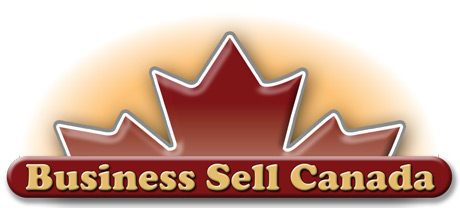|
Overview of the Business Selling Process
There are different approaches to selling a company, but we have found the following
steps should be followed to maximize the selling price and maintain confidentiality
during the selling process.
Selling a small business is one of the most important events in the life of an
entrepreneur. For many, it is a once-in-a-lifetime opportunity to reap
the financial rewards of years of hard work and sacrifice. The financial
consequences are greater and have more lasting impact than any other financial
transaction the seller ever made. The result of the sale can be either
ruinous or rewarding, financially and emotionally. With the stakes so high,
it is absolutely critical for the business seller to have a sound plan
for selling the business.
This step-by-step system has been proven to work in countless business sale
situations. One of the great things about this plan is that, if the
business owner sticks to it, most of the major pitfalls of selling a business
can be avoided.
(1) Valuation - Determine how much the business is worth.
Do you really want to sell? Is now the right time? Use commonly
accepted methods to set a selling price for your business.
(2) Prepare the business for sale - Gather financial statements and
tax returns, develop recast financials, and generally spruce up the business
prior to putting it up for sale.
(3) Find potential buyers - Now itís time to find some interested
buyers. How do you determine who are the best buyers? And how
can you reach them? Also important - how can you keep the planned sale
secret from competitors, employees, suppliers and anyone else who shouldnít
know about it at this time?
(4) Screen potential buyers - If youíve done step three properly, you
have a group of people who have expressed a preliminary interest in buying
a business such as yours. Many are sharks, a few are kooks and many are
wannabes, a lot of them donít have enough money to do a deal, a few are
competitors and suppliers - and a small number are qualified buyers.
It is absolutely critical to qualify potential buyers prior to giving out
any information about your business.
(5) Provide a selling memorandum to potential buyers - The selling
memorandum is an extremely important document. It must combine salesmanship
and truth, putting your business in the most positive light. It sets the
stage for all future negotiations and plays a major factor in how much youíll
be paid for your business.
(6) Provide initial follow-up information to buyers - After receiving the
selling memorandum, buyers will have follow-up questions. These can be
minimized with a well written selling memorandum, but questions invariably come up.
(7) Meet with potential buyers - Since this requires effort on your part
and the buyerís part, if you reach this step it implies a good level of mutual
interest. Caution: Just like there are weird people who get a charge out
of attending funerals, there are a small handful people who get some unexplained
joy from touring companies for sale. Since preparing for a seller visit takes
a great deal of time and planning, make sure visitors are qualified. This
is especially true if potential buyers are local. In some cases, itís
advisable to get a letter of intent prior to a visit.
(8) Letter of intent - A buyer should now have all the information needed
to provide you with a letter of intent. The letter lays out the deal structure
including offering price and terms, as well as other important information.
Although it is generally not legally binding, a LOI is a written promise to follow
through with the deal if due diligence shows all the information you provided
to be substantially correct.
(9) Select first choice, evaluate letters of intent - Now comes the
interesting part, where you evaluate the deals in the letters of intent
youíve gathered and put them in the order you wish to deal with them.
It is considered unethical to deal with multiple buyers, so you negotiate
with only the top buyer (for a limited time) and if that falls through,
you move onto buyer number two and so on.
(10) Due diligence and negotiating with the buyer who is your first
choice - Now your number one prospect has the right (for a limited period of
time, no more than 4 to 6 weeks and preferably less) to dig as deep into your
business as they need to in order to feel comfortable writing the big check.
Intensive scrutiny of financials, physical inventories and even interviews
with key employees may happen here. Itís stressful, but you can survive
due diligence.
(11) Complete the sale - One of the most exciting and nerve wracking
days is closing day. Itís similar to closing on a real estate sale,
but usually more complicated. Deals can still fall through at this stage,
but with the right professional help, the sale is usually completed.
About the author: James Laabs is an experienced business
seller and author of the book The Business Sale System:
Insider Secrets To Selling Any Small Business
This Article is copyright © 2006 Business Sale Center

|


![[ Go Back ] [ Go Back ]](/images/redback.gif)